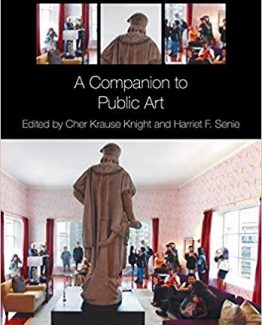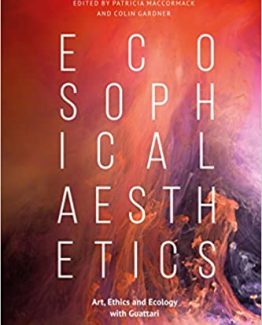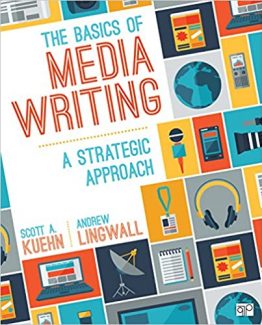Frauds, Myths, and Mysteries: Science and Pseudoscience in Archaeology 10th Edition by Kenneth L. Feder, ISBN-13: 978-0190096410
[PDF eBook eTextbook]
- Publisher: Oxford University Press; 10th edition (December 23, 2019)
- Language: English
- 352 pages
- ISBN-10: 0190096411
- ISBN-13: 978-0190096410
Frauds, myths, and supposed mysteries about humanity‘s past are moving targets for anyone committed to the scientific investigation of human antiquity. It is important for anyone interested in the human past to know, for example, that there is no evidence for a race of giant human beings in antiquity and no broken shards of laser guns under Egyptian pyramids. Debunking such nonsense is fun and useful in its own way, but more important is the process by which we determine that such claims are bunk.
Frauds, Myths, and Mysteries: Science and Pseudoscience in Archaeology, Tenth Edition, uses interesting–and often humorous–archaeological hoaxes, myths, and mysteries to show how we can truly know things about the past through science. It is not just a book about how we know what isn’t true about the human past–it’s also about how we know what is true.
Table of Contents:
Preface
Pseudoscience Cheat Sheet
Chapter 1. Science and Pseudoscience
Spoiler Alert: It’s a Conspiracy!
Belief in the Unbelievable
The Morning of the Magicians
Pseudoscience and Archaeology
Why I Wrote This Book
Expertise: It’s Not a Guarantee, But It Sure Beats the Alternative
Frequently Asked Questions
Critical Thinking Exercises
Chapter 2. Epistemology: How You Know What You Know
Knowing Things
Collecting Information: Seeing Isn’t Necessarily Believing
Collecting Information: Relying on Others
Science: Playing by the Rules
There Is a Real and Knowable Universe
The Universe Operates According to Understandable Laws
The Laws Are Immutable
The Laws Can Be Understood
The Workings of Science
Childbed Fever: A Case Study in the Application of the Scientific Method
Science and Nonscience: The Essential Differences
A Rule in Assessing Explanations
Confirmation Bias
Absence of Evidence or Absence of Sense?
The Art of Science
Where Do Hypotheses Come From?
Testing Hypotheses
Skeptics, Not Cynics; Doubters, Not Deniers
The Human Enterprise of Science
Don’t Try This at Home
Frequently Asked Questions
Critical Thinking Exercises
Chapter 3. GIANTS! Anatomy of an Archaeological Hoax
The Cardiff Giant: The Goliath of New York
The Discovery
The Beginning of the End
Hull’s Confession
The End of the Giant
Why Did They Do It?
Real Deal Archaeology: How We Recognize Frauds When We See Them
The Rules for a Successful Archaeological Hoax
Frequently Asked Questions
Critical Thinking Exercises
Chapter 4. Dawson’s Dawn Man: The Hoax at Piltdown
The Skeleton-More Precisely, the Cranium-in the Closet
The Evolutionary Context
The Brain-Centered Paradigm
A Remarkable Discovery in Sussex
The Piltown Enigma
Unmasking the Hoax
Whodunnit?
Suspect: Charles Dawson
Were There Co-conspirators?
The Lesson of Piltdown
How Were Scientists Fooled?
Real Deal Archaeology: What We Know About Human Evolution
A Rising Hominin Star
Frequently Asked Questions
Critical Thinking Exercise
Chapter 5. Who Discovered America?
America’s First People
A New World–To Europeans
Biblical Exegesis and American Indians
American Indians: From Israelites to Atlanteans
Tracing the Source of Native Americans
Out of Asia
The Beringian Highway
Real Deal Archaeology: What We Know About the Earliest Human Settlement of America
Tracing People by Their Morphology
Tracing People by Their DNA
Tracing People by Their Archaeology
Pre-pre-Clovis?
Frequently Asked Question
Critical Thinking Exercise
Chapter 6. Who’s Next? After the Indians, Before Columbus
Artifact Trails: Evidence of Visitors to the New World
The New England Model
The Archaeology of Columbus
The Spanish Entrada into the American Southeast
Africans in Ancient America?
Other Europeans in the New World Before Columbus?
America B.C.?
Mystery Hill: A Convergence of Evidence?
The Archaeological Verdict
Inscriptions
Real Deal Archaeology: What We Know About The Norse Discovery of America
A New-Found Land
Norse Discovery of America: The Physical Evidence
L’Anse aux Meadows
The Search for the Norse Footprint in North America Continues
Other Evidence of the Viking Presence?
Frequently Asked Question
Critical Thinking Exercise
Chapter 7. The Myth of the Moundbuilders
An Indigenous American Civilization
The Myth of a Vanished Race
Who Were the Moundbuilders? Identifying the Vanished Race
The Archaeology of the Myth
Squier and Davis
The Moundbuilder Mystery Solved
Rationale for the Myth of a Vanished Race
The Mound Builder Myth Revisited
Real Deal Archaeology: What We Know About the Mound-Building People of America
Frequently Asked Questions
Critical Thinking Exercise
Chapter 8. Lost: One Continent-Reward
Atlantis: Where Are You?
Atlantis: The Source of the Legend
The Timaeus Dialogue
The Critias Dialogue
The Source and Meaning of Timaeus and Critias
Who Invented Atlantis?
Where Did Plato Get the Details of the Story? A Minoan Source?
After Plato
Ignatius Donnelly: The Minnesota Congressman
The Lost Continents Theosophy
Atlantis: And the Beat Goes On
Real Deal Archaeology: What We Know About Atlantis
Archaeological Evidence in the Atlantic: The Bimini Wall
The Geology of the Atlantic
Frequently Asked Questions
Critical Thinking Exercise
Chapter 9. Prehistoric E.T.: The Fantasy of Ancient Astronauts
Ancient Astronauts: The Source of the Idea
Gods in Fiery Chariots
The Inkblot Hypothesis
The Horny Astronaut Hypothesis
The “Our Ancestors, the Dummies” Hypothesis
Extraterrestrial Aliens in the Pacific?
Robbing Graves for Fun and Profit
H.P. Lovecraft, Ancient Aliens, and the Cthulhu Connection
They’re Aliens. And They’re Ancient
A Real Mystery
Real Deal Archaeology: The Bias Inherent in the Ancient Astronauts Hypothesis
Frequently Asked Questions
Critical Thinking Exercise
Chapter 10. The Mystery of Ancient Civilizations: How Did People Get So Smart?
The Unexpected Göbekli Tepe
Ancient Egypt
The Civilization of the Maya
Explaining the Maya
Stonehenge
Explaining Stonehenge
An Ancient Astronomy?
Why Was Stonehenge Built?
A Lost Civilization? But It’s Not Atlantis; Well, Maybe It’s Atlantis
Real Deal Archaeology: What We Know About Pyramid Building
School of (Moving) Rock
Build Me a Pyramid
Frequently Asked Questions
Critical Thinking Exercises
Chapter 11. Good Vibrations: Psychics and Archaeology
Psychic Archaeology
Psychic Site Location
Psychic Cultural Reconstruction
Psychic Archaeology: A Test
Psychic Archaeology: The Verdict
Dowsing for Diggers
Real Deal Archaeology: How We Can Investigate Sites Without Digging in the Dirt
Frequently Asked Question
Critical Thinking Exercise
Chapter 12. Old-Time Religion, New Age Visions, and Paranormal Predictions
Scientific Creationism and the Claim of Intelligent Design
Creationist Strategies in Education
Intelligent Design
Noah’s Ark
Footprints in Time
New Age Prehistory
Crystal Skulls
Real Deal Archaeology: What we Know About the Palatki Site in Sedona, Arizona
Frequently Asked Questions
Critical Thinking Exercise
Epilogue: A Past We Deserve
If Cable is Part of the Problem, Can It Also Be Part of the Solution?
References
Index
Kenneth L. Feder is Professor of Anthropology at Central Connecticut State University. He is the author of several books, including The Past in Perspective: An Introduction to Human Prehistory, Eighth Edition (OUP, 2019), and Linking to the Past: A Brief Introduction to Archaeology, Second Edition (OUP, 2007).
What makes us different?
• Instant Download
• Always Competitive Pricing
• 100% Privacy
• FREE Sample Available
• 24-7 LIVE Customer Support





